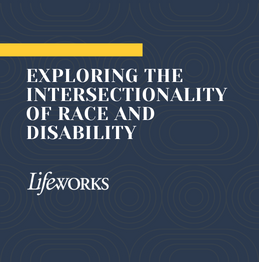
In the quest for inclusivity and social justice, it is crucial to address the often-overlooked intersectionality of race and disability. While the disability community aims to advocate for the rights and needs of individuals with disabilities, it is essential to acknowledge the historical dominance of whiteness within this space. By highlighting the experiences of people of color with disabilities, we can work towards a more inclusive and equitable society that embraces the richness of diversity. Let us embark on a journey of understanding, compassion, and solidarity as we break down barriers alongside the disability community.
Acknowledging the Whiteness Within the Disability Sector
The disability sector has traditionally been dominated by a predominantly white narrative, often neglecting the experiences and voices of people of color. While progress has been made in recent years to promote inclusivity, it is vital to recognize the deep-rooted systemic issues perpetuating this exclusivity. This historical reality has resulted in the marginalization of individuals at the intersection of race and disability, exacerbating their challenges and limiting their opportunities for growth and self-empowerment.
The Complexities of Intersectionality
Intersectionality refers to the interconnected nature of social categories such as race, gender, and disability and how they intersect to shape an individual’s experiences and social standing. For individuals at the intersection of race and disability, the challenges they face are not isolated but compounded by the biases and stereotypes associated with both identities. By understanding the complexities of intersectionality, we can better appreciate the unique struggles faced by people of color with disabilities.
Unveiling the Experiences of People of Color with Disabilities
In recognizing the underrepresentation of people of color within the disability sector, amplifying their voices and experiences is crucial. Their narratives, often overlooked or dismissed, provide invaluable insights into the struggles they face and the barriers they encounter in society. By sharing these stories, we can foster empathy, challenge misconceptions, and dismantle the structural barriers that impede progress toward an inclusive future.
Empowering Change Through Intersectional Advocacy
Building a more inclusive society requires proactive efforts to address the intersectionality of race and disability. It demands a collective commitment to intersectional advocacy that centers the experiences of people of color with disabilities. By actively including diverse voices in decision-making processes, policy development, and resource allocation, we can challenge the status quo and foster a more equitable society for all.
Promoting Allyship and Solidarity
Allyship and solidarity are essential to dismantle the historically white-dominated disability sector. Allies, regardless of their own identities, must educate themselves on the experiences of people of color with disabilities, listen attentively, and actively work to amplify their voices. Engaging in self-reflection, challenging one’s biases, and actively seeking diverse perspectives is imperative to foster an environment that values and celebrates intersectionality.
In the pursuit of inclusivity, understanding the intersectionality of race and disability is crucial. By recognizing and challenging the historical dominance of whiteness within the disability sector, we can break down barriers and create a more equitable and inclusive society. Empathy, education, and solidarity are powerful tools in fostering change. Let us come together to advocate for a future where the experiences and needs of people of color with disabilities are truly heard, valued, and respected.
